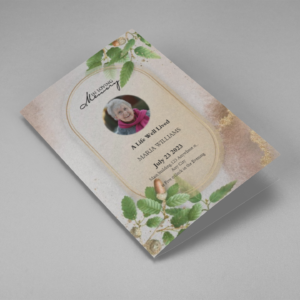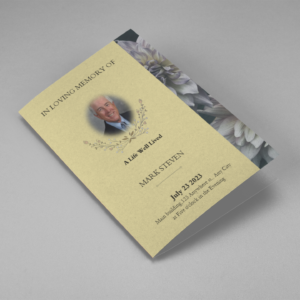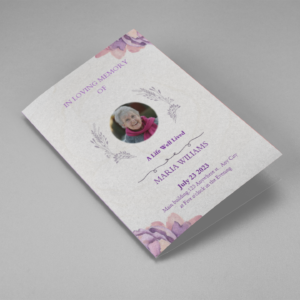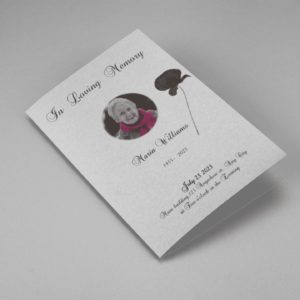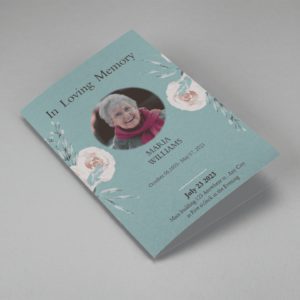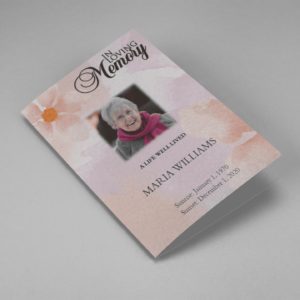In the process of planning a funeral, many people focus primarily on the funeral service itself. However, the gathering that often takes place after the funeral, known as a repast or reception, plays a significant role in the mourning process. This function provides a space for family and friends to come together, share memories, offer support, and begin the journey of healing. But what exactly is this function called, and what are its key features? Let’s explore.
Understanding the Post-Funeral Gathering
The function after a funeral goes by several names depending on cultural, religious, or regional traditions. Common terms include:
- Repast: A meal or reception held after the funeral service.
- Reception: A gathering of family and friends following the funeral service, typically involving food and drink.
- Wake: In some traditions, the term wake can also refer to a gathering after the funeral.
- Memorial Reception: A gathering that occurs after a memorial service rather than a traditional funeral.
What Is a Repast?
The term “repast” comes from the Latin word repastus, meaning “to eat again.” Traditionally, the repast refers to a meal shared by the mourners after the funeral. This meal provides an opportunity for attendees to relax, share stories, and remember the deceased in a more informal setting. The atmosphere is usually more relaxed compared to the somber tone of the funeral service, allowing people to connect and offer mutual support.
Purpose of the Repast or Reception
The gathering after the funeral serves several essential purposes:
- Providing Comfort and Support: After the emotional experience of the funeral, a reception allows attendees to comfort one another, share their grief, and offer support.
- Celebrating the Life of the Deceased: While the funeral service often focuses on the formal aspects of saying goodbye, the reception provides a space to celebrate the life of the deceased more freely. Stories, laughter, and fond memories often emerge during this time.
- Cultural and Religious Traditions: Many cultures and religions have specific customs associated with post-funeral gatherings. For instance, in Jewish tradition, the shiva is observed, where family members receive visitors in their home for up to seven days after the funeral. In other cultures, the post-funeral meal may be an essential part of honoring the deceased.
- Offering Hospitality: The act of sharing a meal is a gesture of hospitality, reflecting the communal nature of grief and the importance of coming together during difficult times.
How to Organize a Post-Funeral Function
Planning the function after a funeral can be as simple or elaborate as the family desires. Here are some key steps to consider:
1. Choosing the Venue
The location of the reception or repast can vary widely. Common choices include:
- The Family Home: A familiar and comfortable environment for gathering.
- A Community Hall or Church: Many religious institutions offer space for receptions, especially if the funeral service was held there.
- A Restaurant or Banquet Hall: Some families choose to host the reception at a restaurant, where catering and space management are handled by professionals.
2. Selecting the Menu
The menu for the repast can range from a simple spread of snacks and refreshments to a full meal. Consider the following:
- Comfort Foods: Traditional comfort foods are often chosen for their familiarity and the warmth they bring.
- Cultural Foods: Incorporating dishes that reflect the cultural background of the deceased or the family can add a personal touch.
- Potluck Style: In some communities, guests bring dishes to share, creating a communal meal that reflects the collective support of the group.
3. Setting the Tone
The atmosphere of the post-funeral gathering can vary depending on the preferences of the family and the personality of the deceased. Some may prefer a more subdued and reflective tone, while others might choose a more celebratory atmosphere. Music, décor, and activities can all contribute to the desired ambiance.
4. Creating a Memorial Space
Many families choose to create a small memorial space at the reception where guests can leave notes, view photographs, or light candles in honor of the deceased. This space can serve as a focal point for reflection and remembrance.
Cultural Variations in Post-Funeral Gatherings
Different cultures and religions have unique customs surrounding the function after a funeral. Here are some examples:
1. Jewish Shiva
In Jewish tradition, the immediate family of the deceased observes shiva, a period of mourning that typically lasts seven days. During this time, family members stay at home and receive visitors, who come to offer condolences and share in the mourning process. The shiva home is often filled with food brought by visitors, allowing the family to focus on grieving without the burden of meal preparation.
2. Irish Wake
While traditionally, the Irish wake took place before the funeral, modern practices often include a post-funeral gathering that continues the spirit of the wake. This gathering is marked by storytelling, music, and sometimes even laughter, as friends and family celebrate the life of the deceased.
3. Hispanic Novenario
In many Hispanic cultures, the novenario is a nine-day period of prayer and remembrance that begins immediately after the funeral. During this time, family and friends gather each evening to pray and share a meal, reflecting on the life of the deceased and offering support to one another.
4. Christian Funeral Receptions
In many Christian denominations, it is common to hold a reception in the church hall or a family home after the funeral service. This gathering often includes a potluck meal or catered food, with an emphasis on fellowship and community support.
The Importance of the Post-Funeral Gathering
While the funeral service provides a formal opportunity to say goodbye, the function after the funeral offers a more intimate setting for mourning, remembrance, and support. It is a time to share stories, express emotions, and find comfort in the presence of loved ones.
Emotional Healing and Connection
Grieving is a process that requires time and support. The post-funeral gathering plays a crucial role in this process by providing a space where people can connect on a deeper level. Sharing memories and expressing emotions in a supportive environment can be a powerful step toward healing.
Honoring the Deceased
The stories, laughter, and shared memories that emerge during the reception or repast are essential in keeping the memory of the deceased alive. These gatherings allow people to honor the deceased in a personal and meaningful way, ensuring that their legacy is remembered and celebrated.
Building Community
The function after a funeral is also an opportunity to build and strengthen community bonds. In times of loss, the support of a community is invaluable. The shared experience of mourning brings people together, creating a sense of unity and mutual care.
Funeral Templates
-
Searching for a Oak Leaf With Gold Oval Frame Half Page Funeral Program that is easy to print and amass and has a cutting-edge look? The Oak Leaf With Gold Oval Frame Half Page Funeral Program is the Perfect decision because it measures 8.5”x 5.5”.
- No Limitation on Content, Edit anything
- Edit anytime – unlimited revisions even after purchased
- Get a printable PDF downloaded to get it printed on your own.
-
Searching for a Brown and White Classic Funeral Program Half Page Program that is easy to print and amass and has a cutting-edge look? The Brown and White Classic Funeral Program Half Page Program is the Perfect decision because it measures 8.5”x 5.5”.
- No Limitation on Content, Edit anything
- Edit anytime – unlimited revisions even after purchased
- Get a printable PDF downloaded to get it printed on your own.
-
Searching for a Purple Elegant Watercolor Half Page Funeral Program Template that is easy to print and amass and has a cutting-edge look? The Purple Elegant Watercolor Half Page Funeral Program Template is the Perfect decision because it measures 8.5”x 5.5”.
- No Limitation on Content, Edit anything
- Edit anytime – unlimited revisions even after purchased
- Get a printable PDF downloaded to get it printed on your own.
-
Searching for a Cream and Green Photo Obituary Half Page Program that is easy to print and amass and has a cutting-edge look? The Cream and Green Photo Obituary Half Page Program is the Perfect decision because it measures 8.5”x 5.5”.
- No Limitation on Content, Edit anything
- Edit anytime – unlimited revisions even after purchased
- Get a printable PDF downloaded to get it printed on your own.
-
Searching for a Cream Simple Elegant Photo Church Half Page Program that is easy to print and amass and has a cutting-edge look? The Cream Simple Elegant Photo Church Half Page Program is the Perfect decision because it measures 8.5”x 5.5”.
- No Limitation on Content, Edit anything
- Edit anytime – unlimited revisions even after purchased
- Get a printable PDF downloaded to get it printed on your own.
-
Searching for a Samovar Silver Half Page Funeral Program Template that is easy to print and amass and has a cutting-edge look? The Samovar Silver Half Page Funeral Program Template is the Perfect decision because it measures 8.5”x 5.5”.
- No Limitation on Content, Edit anything
- Edit anytime – unlimited revisions even after purchased
- Get a printable PDF downloaded to get it printed on your own.
-
Searching for an Elegant Beige Half Page Funeral Program Template that is easy to print and amass and has a cutting-edge look? The Elegant Beige Half-Page Funeral Program Template is the Perfect decision because it measures 8.5”x 5.5”.
- No Limitation on Content, Edit anything
- Edit anytime – unlimited revisions even after purchased
- Get a printable PDF downloaded to get it printed on your own.
-
Searching for a White Floral Pro Half Page Funeral Program Template that is easy to print and amass and has a cutting-edge look? White Floral Pro Half Page Funeral Program Template is the Perfect decision because it measures 8.5”x 5.5”.
- No Limitation on Content, Edit anything
- Edit anytime – unlimited revisions even after purchased
- Get a printable PDF downloaded to get it printed on your own.
-
Searching for a Grey and Burgundy Elegant Half Page Funeral Program Template that is easy to print and amass and has a cutting-edge look? Grey and Burgundy Elegant Half Page Funeral Program Template is the Perfect decision because it measures 8.5”x 5.5”.
- No Limitation on Content, Edit anything
- Edit anytime – unlimited revisions even after purchased
- Get a printable PDF downloaded to get it printed on your own.
-
Searching for a Soft Green and Grey Minimalist Floral Half Page Funeral Program Template that is easy to print and amass and has a cutting-edge look? Soft Green and Grey Minimalist Floral Half Page Funeral Program Template is the Perfect decision because it measures 8.5”x 5.5”.
- No Limitation on Content, Edit anything
- Edit anytime – unlimited revisions even after purchased
- Get a printable PDF downloaded to get it printed on your own.
-
Searching for a Gray Elegant Oval Frame Half Page Funeral Program Template that is easy to print and amass and has a cutting-edge look? Gray Elegant Oval Frame Half Page Funeral Program Template is the Perfect decision because it measures 8.5”x 5.5”.
- No Limitation on Content, Edit anything
- Edit anytime – unlimited revisions even after purchased
- Get a printable PDF downloaded to get it printed on your own.
-
Searching for a Blue Organic Minimal Half Page Funeral Program Template that is easy to print and amass and has a cutting-edge look? Blue Organic Minimal Half Page Funeral Program Template is the Perfect decision because it measures 8.5”x 5.5”.
- No Limitation on Content, Edit anything
- Edit anytime – unlimited revisions even after purchased
- Get a printable PDF downloaded to get it printed on your own.
-
Searching for a Pink and Orange Watercolour Half Page Funeral Program Template that is easy to print and amass and has a cutting-edge look? Pink and Orange Watercolour Half Page Funeral Program Template is the Perfect decision because it measures 8.5”x 5.5”.
- No Limitation on Content, Edit anything
- Edit anytime – unlimited revisions even after purchased
- Get a printable PDF downloaded to get it printed on your own.
-
Searching for a Pink Floral Paper Half Page Funeral Program Template that is easy to print and amass and has a cutting-edge look? Pink Floral Paper Half Page Funeral Program Template is the Perfect decision because it measures 8.5”x 5.5”.
- No Limitation on Content, Edit anything
- Edit anytime – unlimited revisions even after purchased
- Get a printable PDF downloaded to get it printed on your own.


